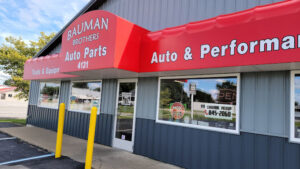Vehicle service and repair shops concerned about climate change seems to be growing in recent years

The EPA recently folded many regulations for automotive service and repair shops into existing rules. The government updated the National Compliance Initiatives, setting out enforcement and compliance requirements.
The new regulatory approach encourages a “full range of compliance tools,” including informal actions, state-led guidance, and the use of federal, civil or criminal enforcement where necessary.
Automotive Shop Compliance Initiatives:
- Creating Cleaner Air for Communities by Reducing Excess Emissions of Harmful Pollutants
- Reducing Hazardous Air Emissions from Hazardous Waste Facilities
- Stopping Aftermarket Defeat Devices for Vehicles and Engines
- Reducing Significant Noncompliance with National Pollutant Discharge Elimination System Permits
- Reducing Noncompliance with Drinking Water Standards at Community Water Systems
- Reducing Risks of Accidental Releases at Industrial and Chemical Facilities
Danard Crook, Sr. Account Manager at Martin Auto Color, commented, “It is in every facility’s best interest to run a safe and compliant operation. The key for an efficient operation is to maintain lines of communication with regulating authorities, to know where to find regulations that impact your operations and to understand them. The final rule as always … When in doubt, consult with your paint supplier and appropriate authorities.”
Auto shop owners remain politically divided from the public on several questions about climate change. A large number of shop owners who lean toward politics say human activity is contributing the most to climate change and that the government is doing too little to reduce the effects from other industries.
In particular, auto shop owners who describe their political views as moderate are much more likely than conservative shop owners to recognize or support policies to address climate change. Further, younger generations and women tend to be more critical of government action on the environment than their older counterparts.
Consistent with concern over climate change, most in the automotive industry say the priority should be to develop alternative sources of energy, such as wind and solar; few give priority to pollution caused by oil, coal and natural gas. To shift consumption toward renewables, a majority of shop owners say government regulations may be necessary to encourage the use of alternative energy; some think the private marketplace will ensure this change to become a routine practice.
Auto shop owners surveyed said climate change is affecting their local community. Many said climate change is affecting their community very little. The share who see at least some local impact from climate change is about the same as it was last year.
The overall majority of shop owners interviewed who live in the Northeast, South and West say climate change is affecting their community a great deal. Those who live in the Midwest are slightly less likely to say this. By contrast, paint manufacturers believe climate change is affecting the local community at least some; but most paint jobbers say climate change is not impacting their sales.
Overall, many shop owners who live less than 25 miles from the coastline say climate change is affecting their local community at least some, compared with a significantly smaller share of shop owners who live 300 or more miles from the coastline.
The majority of Americans continue to say that regulatory agencies are doing too little to protect key aspects of the environment. About two-thirds of Americans say the federal government is doing too little to protect air quality or water quality in rivers, lakes and streams. About six-in-ten think the federal government is also doing too little to protect animals and their habitats and a slightly smaller majority say the federal government is doing too little to protect open lands in national parks.
Various agencies regulate auto shops for compliance with the goal of reducing waste and encouraging them to recycle. This is not a ban on land-based waste disposal, it is meant to encourage the use of “manifests” and a “cradle-to-grave” tracking system. All automotive shops subject to hazardous waste regulations must obtain an EPA identification number and show proof of every “manifest” which tracks their waste. Each time the waste changes hands, a copy is sent back to the EPA to ensure everyone along the chain is informed, preventing unidentified wastes from arriving at disposal facilities. This is a part of Environmental Law for all automotive service and repair shops.

The above survey emphasizes the partisan divide that is affecting the automotive service and repair industry. The Trump administration reversed or attempted to change more than 100 EPA and OSHA rules and regulations related to carbon dioxide emissions, clean air, water and toxic chemicals.
Since President Biden has been in office, both Democratic and Republican shop owners are critical of government action on the environment as is most of the public. Narrow majorities say the government is doing little to protect water quality, air quality, or wildlife in their effort to reduce climate change. Ideological gaps among shop owners are more modest than among the public. Interested parties can download more Small Business Assistance information @https://www.recslock.com/










Comments are closed.